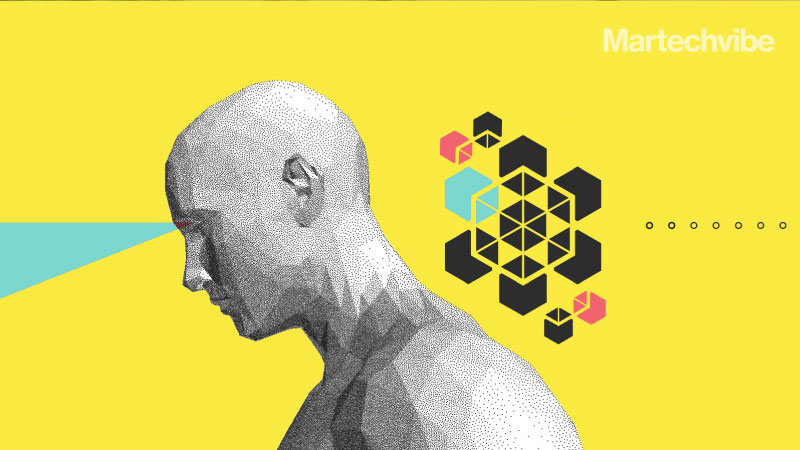Martech Learning: Courses For The C-suite
As per industry experts, updating skills is important for employees at the mid and senior levels to have a better knowledge of the latest tools and technologies, regulatory and environmental trends, as well as new management and business practices. We’re back with another researched and curated list of the most relevant courses. Design Thinking: A […]
Topics

As per industry experts, updating skills is important for employees at the mid and senior levels to have a better knowledge of the latest tools and technologies, regulatory and environmental trends, as well as new management and business practices. We’re back with another researched and curated list of the most relevant courses. 
Design Thinking: A Toolkit for Breakthrough Innovation
University: Kellogg Executive Education
Professor: David Schonthal
Today’s competitive environment requires us to view opportunity through a different lens — one that focuses on human needs. Ideas that are born from the process of design thinking ensure that outcomes meet three criteria: they are desirable, feasible, and viable — and in doing so, these outcomes create an enduring competitive advantage.
Course Highlights:
- Learn to apply design thinking fundamentals to ensure that a solution is desirable from a human point of view and aligns with what is technologically feasible and economically viable.
- Develop an in-depth understanding of the full design process from inspiration to implementation and learn to transform an idea into an innovative product or service.
- Gain hands-on experience with key methods and tools, including the Jobs-to-be-Done framework for customer discovery, synthesis, ideation, prototyping, and storytelling to create and communicate offerings that address customer needs.
- Learn how design thinking is used to conceive innovative business models and forecast trends and developments.
- Discover how design thinking can nurture your creativity, help you overcome resistance to new ideas, and provide advantages such as reduced time-to-market, lower costs, and increased market share.
- Implement design thinking as a rigorous, human-centred approach to creative problem solving that can be leveraged across a spectrum of functions, industries, and organisations.
Course Duration: 8 weeks
Fee: $2,600 for the entire course, including guest lectures from experts in design and innovation, industry examples from renowned brands.
The course is best for:
- Product or service managers seeking an innovative, consumer-oriented strategy that minimises the risk of bringing a new product to market by developing deep insights, rapid prototyping, and designing thoughtful experiments
- Designers who want to address people’s needs through creative thought processes and advance their careers with a hands-on certificate program
- Consultants who want to offer clients far more differentiated and disruptive solutions using a step-by-step method of problem-solving and integrated design thinking approaches
- C-suite professionals, heads of business, and entrepreneurs who recognise that gaining an edge and increasing market share requires re-imagining their businesses from the bottom up and wish to make design thinking an inherent philosophy in their organisations
- Individuals or teams developing transformational business models and searching for new ways to bring offerings to the market with lower risk and strong customer focus.
Digital Disruption: Digital Transformation Strategies
University: University of Cambridge
Professors: Shahzad (SHAZ) Ansari, Dr Kamal Munir
Disruption is a force that is changing the corporate landscape, and organisations must transform at a rapid pace to meet the demands of digital. The recent wave of disruption has left many in its wake, and firms now frequently compete with players outside their industry.
Succeeding in this environment requires not only a thorough understanding of what disruption is and how to deal with it, but also the knowledge of how to disrupt others.
With the Digital Disruption: Digital Transformation Strategies programme, participants will be provided with research-based insights on disruptive innovations and what it takes to build and manage successful business models in this complex era.
Course Highlights:
- Dealing with Disruption: Define and recognise disruption in its various forms and learn common disruption strategies.
- Platform Strategies: Understand the challenges associated with platforms and learn to develop strategies to deal with them.
- Business Models: Identify what a business model is and be able to design a business model to create value.
- Challenges Adapting: Learn to distinguish successful platforms from unsuccessful ones, and why some incumbents are unable to adapt to disruption.
- Ecosystem Evolution: Examine the importance of ecosystems from the perspective of both a new entrant and an incumbent, and be able to more accurately predict how new ecosystems are likely to evolve.
Course Duration: 2 months
Fee: $2,000 for the entire course, including all case studies.
Upon successful completion of the programme, participants will be awarded a digital certificate of completion by Cambridge Judge Business School Executive Education.
The course is best for:
- C-Suite Executives, Directors, General Managers looking to grow their business via digital transformation by understanding disruption through a broad lens so they can modify their business model to suit digital customers.
- Functional Managers such as those working in product development, digital marketing, operations and related areas who are seeking to sharpen their skills and stay current on the latest trends.
- Consultants aiming to recognise key drivers and early signs of disruption so they can help their clients prepare for disruption and innovate their business models accordingly.
Innovation Through Design Thinking
University: London Business School
Professor: Julian Birkinshaw
Innovation Through Design Thinking course delivers insights from Prof. Julian Birkinshaw, an international expert on innovation, as well as inspiration from the world’s most design-forward brands – Apple, Unilever, Spotify, P&G. The goal is for you to acquire practical tools and techniques to help you solve your own innovation challenge.
Course Highlights:
- Identify the principles of design thinking and why innovation is important to you and your company right now.
- Define and frame your own innovation challenge and apply design thinking frameworks to solve it.
- Explore possible futures and hone your innate creativity with design thinking techniques.
- Move your innovation concept forward by building the right plan to gain support from stakeholders.
- Use experimentation and prototyping to turn your ideas into reality.
- Exploit a whole new market while protecting your current one.
- Learn to take the pulse of your customers — potential, new, and loyal – to understand and influence their behaviours.
- Acquire the mindset and skills to build a corporate culture of innovation.
Course Duration: 6 weeks
Fee: $1,650 for the entire course.
Upon successful completion of the programme, you’ll earn a digital certificate of completion from London Business School.
The course is best for:
- C-Suite and general management executives who want to build awareness by learning key principles of innovation, understand the broader business context of internal challenges, and drive change through innovation.
- Mid-level functional managers who want to nurture a culture of innovation within their team or function; learn techniques for prototyping, designing, and running experiments; and understand design thinking to deploy innovative solutions for their organisations.
- Consultants who want to generate ideas for new products and services or new business models; learn proven methodologies for building innovation, and offer disruptive solutions for their clients.
- Entrepreneurs, owners and founders who want to apply design thinking techniques to identify customer needs; improve their business by generating ideas for new products, services, and business models; and learn from innovators how to remain relevant and competitive in the face of disruption.
Future of Technology: Trends, Strategies, and Innovation Opportunities
University: UC Berkeley Executive Education
Professor: Olaf Groth
Marketers need to embrace the opportunities that emerging technologies present during digital transformation. With Future of Technology: Trends, Strategies, and Innovation Opportunities participants will leverage disruptive tech insights to drive innovation strategies and gain competitive advantages.
Course Highlights:
- Explore trends, insights, and implications of key disruptive technologies
- Apply foresight tools and frameworks to evaluate opportunities in tech-driven future
- Build resilience in your organisation amid technology disruption
- Leverage disruptive tech insights to drive innovation strategy
- Create a technology portfolio to gain competitive advantages in your industry
Course Duration: 2 months
Fee: $2,600 for the entire course, which includes notable guest speakers, crowd-sourced activities, real-world examples, capstone.
Upon successful completion of the program, UC Berkeley Executive Education grants a verified digital certificate of completion to participants. Participants must complete 80 per cent of the required activities including a capstone project (if any) to obtain the certificate of completion. This program also counts toward a Certificate of Business Excellence.
The course is best for:
- Technology leaders who want to make a case for their organisations to invest in emerging technologies and create a roadmap for navigating digital transformation.
- Senior business leaders who want to grow their organisations through innovation and leverage the opportunities that new technologies present.
- Mid-level functional managers who would like to explore the various applications of new technologies and understand their impact in their functional areas.
- Consultants who want to keep pace with disruptive technologies and discover new applications across industries while mitigating risks and instilling resilience.
B2B Marketing Strategy
University: Columbia Business School Executive Education
Professor: Miklos Sarvary
In the B2B Marketing Strategy program, participants will acquire a practical understanding of how to gain a competitive advantage with effective marketing, pricing, sales force, and social media tools for each stage of your go-to-market strategy.
Course Highlights:
- Discern the B2B decision funnel
- Write your value proposition
- Build your social media strategy
- Plot your response curve for setting advertising or marketing budgets
Course Duration: 6 weeks
Fee: $2,600 for the entire course, including bite-sized learning, real-world application, case studies.
Upon completion of the program, participants will receive a certificate of participation from Columbia Business School Executive Education and two days towards a Certificate in Business Excellence.
The course works best for:
- Managers from a technical or manufacturing background, now responsible for growth or marketing-driven functions
- Product managers and marketing leads transitioning from a consumer domain into a B2B environment
- Account managers seeking to make better customer-relationship decisions specific to B2B marketing
- Experienced and newly promoted product and business unit managers with technical expertise but limited marketing background
Want to know about other courses? Please write to us at editorial@staging.martechvibe.com.
If you liked reading this, you might like our other stories
Taking eCommerce to the Next Level
How Has Machine Learning Impacted Marketing?







